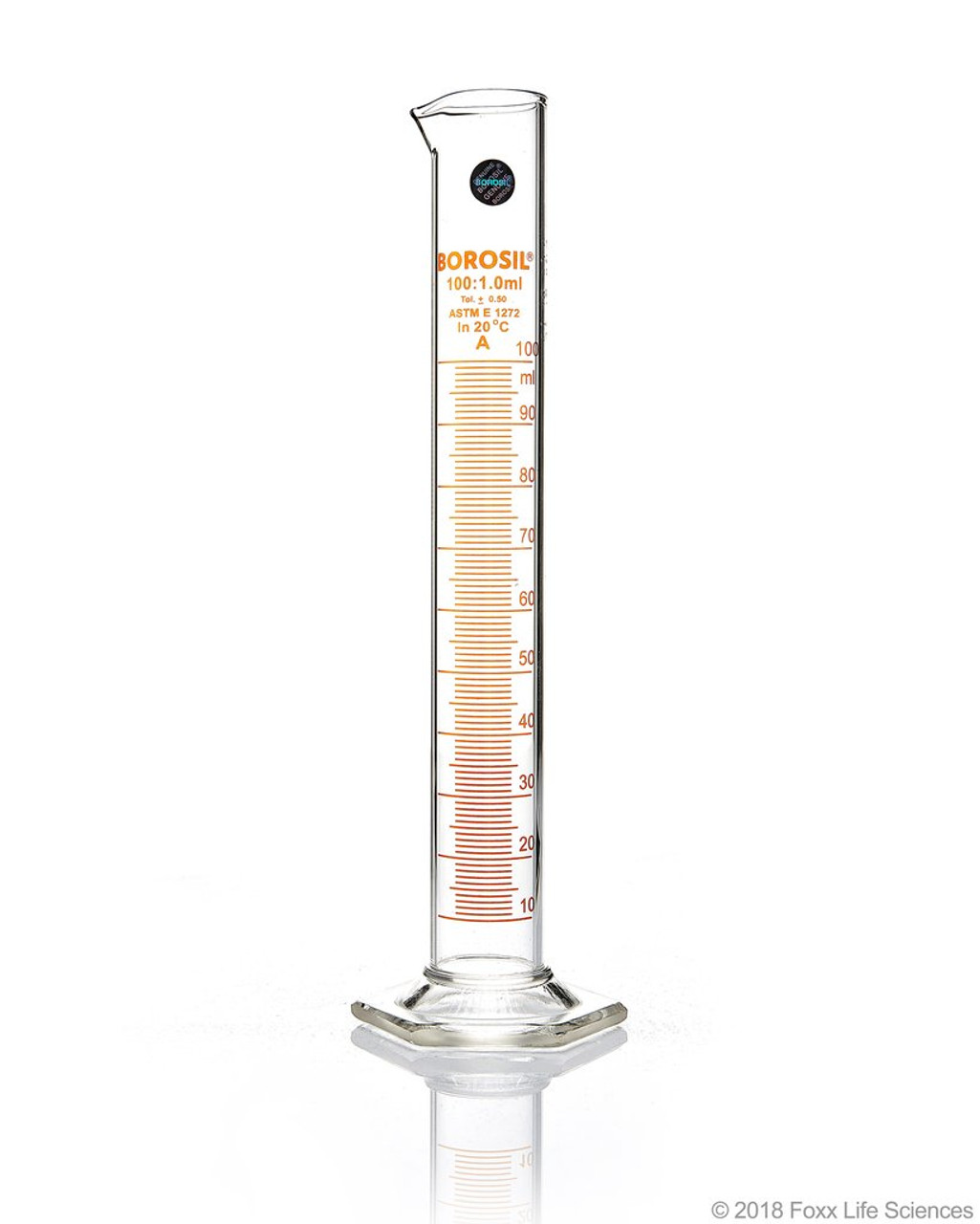Graduated cylinders are critical pieces of laboratory equipment for accurately measuring liquids.
When it comes to selecting the right graduated cylinder for your specific needs, two important factors come into play: the class of the cylinder and the material it's made from.
Class A vs. Class B Graduated Cylinders
Graduated cylinders are classified based on their level of accuracy, which is determined by their calibration tolerance.
Class A cylinders offer higher precision and tighter tolerances compared to Class B cylinders.
Class A graduated cylinders typically have a lower tolerance and are used for tasks that demand high accuracy, such as volumetric analysis and preparing solutions with precise concentrations.
Class A graduated cylinders are often used in research, pharmaceutical, and analytical laboratories where even small measurement discrepancies can impact results.
On the other hand, Class B graduated cylinders have a slightly wider tolerance and are suitable for general laboratory work, routine measurements, and educational purposes.
Class B graduated cylinders are more commonly found in teaching laboratories and industrial settings where a high level of precision is not critical.
Glass Graduated Cylinders:
Glass graduated cylinders have long been a staple in laboratories due to their excellent optical clarity and resistance to chemical corrosion. They are an ideal choice for situations where the precise measurement of liquids is paramount.

Glass graduated cylinders can withstand a wide range of chemicals and provide accurate readings even after prolonged use.
They are particularly well-suited for applications involving reactive substances, as they won't interact with the liquids being measured.
Plastic Graduated Cylinders:
Plastic graduated cylinders are lightweight and less prone to breakage, making them a safer option when working with children or in environments where accidental drops are more likely.

Plastic graduated cylinders are also an excellent choice when dealing with non-corrosive and non-reactive substances, as they are less likely to be affected by the chemicals being measured.
Features that are common to both glass and plastic graduated cylinders are:
- Oversized base to provide balance and support and prevent accidental tipping
- Sharp graduation lines
- Pouring spout
- Certifications printed on the graduated cylinder
When is it better to choose glass or plastic graduated cylinders?
In teaching environments where the highest level of accuracy is not essential, Class B graduated cylinders, whether made of glass or plastic, can be used effectively for demonstrating basic measurement techniques.
For precise volumetric analysis and critical experiments, Class A glass graduated cylinders are the preferred choice due to their superior accuracy and chemical resistance.
In industrial settings, plastic graduated cylinders might be preferred for their durability and resistance to breakage, especially when dealing with non-corrosive substances.
Plastic graduated cylinders are advantageous when conducting fieldwork or outdoor experiments due to their portability and reduced risk of breakage during transportation.
Stellar Scientific has graduated cylinders for all types of laboratories and all applications.
View our laboratory glassware options here, and our plastic graduated cylinders here.


